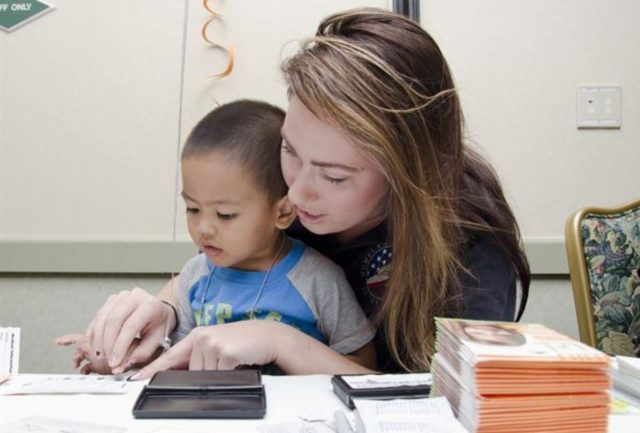Your child’s online activities could expose them to numerous risks and dangers much similar to their real-life interactions. These can vary from cyberbullying to falling for scams, and the statistics are certainly nerve-wracking. For instance, 34% of students in the US have reported experiencing a cyberbullying encounter, the most common type of harassment experienced by children online. The dangers of child predators are equally concerning, with 1 in 5 children between the ages of 10 to 17 years reporting some form of unwanted sexual advance online. But this is not all; there are many other online risks and dangers your child could experience. These can range from downloading malicious spyware to being exposed to inappropriate content.
However, there are effective measures you can take as a parent to protect your kids from these cyber dangers. This article provides 7 essential steps to guide you with this process.
- Spend time to learn
This is the most essential first step as a parent if you want to protect your child from the constantly evolving dangers of the online world. There are numerous technological tools available for modern-day parents to protect their children, such as background search sites like Nuwber and geo-location trackers like GPS Phone Tracker. And proactive learning is what will help you to uncover these invaluable solutions.
It will also enable you to keep pace with your child’s online activities, preferences, and interests as they evolve over time with changing trends. And to make your life easier, the internet provides a vast pool of resources for the convenience of busy parents.
- Set rules and guidelines
Similar to any other important activity like Google Maps, your child requires rules when it comes to using the internet. Set clear guidelines as to what times during the day they could be online, and what type of content and websites they could access. Set rules about the type of information they could share online, and for which kind of content they would need your permission before sharing. Keep the computer in a common area in the house and prevent them from using Wi-Fi in other areas. This will allow you greater control over their internet use.
Ensure that they understand why rules are needed and the repercussions of breaking them. Monitor occasionally to check whether they are respecting the rules set.
- Have open conversations
Having open conversations is equally important as setting ground rules. Encourage your child to raise any questions, share concerns, and discuss their online activities.
Creating an environment for open communication with your child is important for several reasons. It could ensure that they approach you with confidence in case of any incidents. Having regular conversations could help you identify who they interact with and new friends they have made online. It could help you identify any individuals of a suspicious nature that they may be frequently chatting with and recognize any warning signs of a possible danger.
Spending time with them regularly on the internet could also help you to understand their interests so that you can help and connect with them better.
- Teach
According to research, 40% of children spoke to a stranger online and 53% even disclosed their contact number. This demonstrates the importance of educating your child about online safety.
Teaching your kids about the internet and how to navigate it effectively is the best solution to empower them and hold them accountable for safe online behaviors. This is an important step for them to learn self-regulation and to ensure their safety with minimal supervision as they get older.
Discuss with them potential online risks and dangers such as cyberbullying, harassment, identity theft, and other criminal activities. Teach what type of data to share and what to avoid when interacting online. Educate them about data security, password protection, and other safety measures to keep in mind and follow. Speak to them about raising their voice when they suspect danger, alerting you and other adults, as well as taking preventative actions. Teaching them how to express opinions and respect different views and beliefs is also important as they get exposed to diverse communities online.
- Use a search filter
Many search engines like Google provide a Safe Search feature for children. This will allow you to filter inappropriate content from online searches, preventing your child from visiting websites that are unsuitable for their age. Even social platforms such as YouTube offer this function to filter search results.
Activating Safe Search will provide you with the peace of mind of knowing that the content your children consume is age-appropriate.
- Set up separate accounts for kids
Ensuring that you set up separate accounts for the main web platforms your child uses can provide you with greater control with access to their online activities.
For instance, setting up a single Google account can enable you to keep an eye on a range of other platforms such as Gmail, YouTube, Google Maps, and Google Play. This will allow you to monitor multiple activities, check search history, and set restrictions.
- Use a parental control app
It could become increasingly difficult to keep track of your child’s online activities as it increases with their diverse interests; from YouTube channels and social media platforms to mobile games and online chat rooms. This is where parental control tools could support you.
There are various parental control software and apps in the market such as Kaspersky Safe Kids and Qustodio. These could provide you a range of useful features, making them a popular choice among parents. They can allow you to set internet usage times, restrict access, and filter websites and content across several devices including laptops, mobile phones, and tablets.
Some of these apps even provide real-time GPS tracking to help you keep track of your kids through their mobile devices. They can also provide you with regular reports of your child’s online activities.
The digital space has become a haven for cyberbullies, child predators and criminals as technology has provided them with tools to manipulate, impersonate and mislead even adults. However, taking proactive steps today can help you protect your kids effectively, and allow them to remain safe and experience the many wonders technology has created within the online world.





